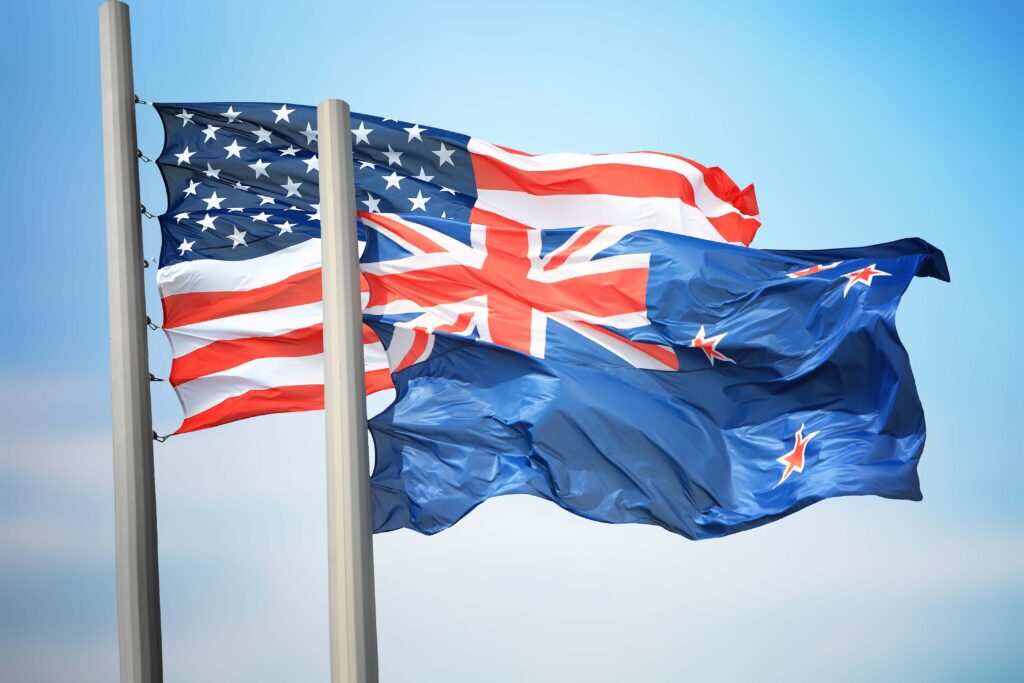by Hannah Meikle, Financial Adviser at Cambridge Partners
KiwiSaver is a voluntary retirement savings scheme in New Zealand, and thanks to benefits such as employer and government contributions, it is an appealing option for those living in Aotearoa to save for retirement. However, for United States citizens (and Green Card holders) residing in New Zealand, participating in KiwiSaver comes with additional layers of complexity which stem from:
- The ongoing requirement for US citizens and permanent residents to file US taxes, regardless of where they physically reside.
- The application of the Passive Foreign Investment Company (PFIC) rules.
- The classification and treatment of KiwiSaver accounts under the US Tax Code.
Understanding and effectively navigating these complexities is crucial for US citizens and residents to grow their funds efficiently, avoid unforeseen tax liabilities, and safeguard their hard-earned retirement savings.
Cambridge Partners specialises in assisting US clients in New Zealand with their investments, and we have developed strategies and solutions designed to address these challenges and optimise investment growth.
The impact of the PFIC rules
When investing in foreign companies and funds, like KiwiSaver, US citizens need to navigate the complex PFIC rules. Designed to prevent US taxpayers from deferring taxes by investing in foreign mutual funds or similar pooled investment vehicles, the rules impose stringent tax rules on investments in foreign corporations that generate passive income (from dividends, interest etc.) or hold income-producing assets.
Investments designated as PFICs are subject to a set of tax rules, which often result in punitive levels of tax for the investor. For example, PFIC income is generally taxed at the highest ordinary income tax rate applicable for each year the investment is held, and it may also incur interest charges. Furthermore, any capital gains derived from PFICs are treated as ‘excess distributions’ and subjected to higher taxation rates. Accordingly, it is generally recommended for overseas US citizens to avoid owning PFIC investments.
However, a challenge for US citizens is that KiwiSaver funds are typically classified as Portfolio Investment Entities (PIEs). While PIE funds offer tax advantages for most New Zealanders, investment in PIEs may in some situations trigger PFIC reporting obligations for US taxpayers. Consequently, they may face high tax rates and interest charges on their KiwiSaver accounts.
Cambridge Partners provides US clients with customised investment advice and solutions to avoid or minimise the impact of the PFIC regime.
Classification of KiwiSaver under the US Tax Code
Under the US Tax Code, retirement accounts like IRAs and 401(k)s receive preferential tax treatment, allowing tax-deferred contributions and tax-free growth until withdrawals in retirement.
Despite its retirement savings nature, KiwiSaver is not typically considered a retirement account under the US Tax Code (partly due to a lack of minimum employer sponsorship as defined by US
standards). Instead, KiwiSaver accounts are often classified as foreign trusts for US tax purposes due to the way funds are held for investors. This trust structure offers several benefits for NZ investors, including an added layer of legal protection for the invested funds.
However, for US citizens, this means that KiwiSaver accounts may need to be reported to the IRS annually as ‘foreign trusts.’ The specific tax implications vary based on the scheme’s specifics and the characteristics and nature of its underlying assets. Given the complexities and the potential penalties for misreporting, it is highly advisable for US citizens participating in KiwiSaver to seek specialist tax advice.
To conclude, KiwiSaver is a great tool for saving for retirement. However, US citizens in New Zealand must be aware of and navigate additional considerations and tax obligations, including the application of the PFIC rules. At Cambridge Partners, we have experience guiding US clients through these complexities and can offer investment solutions and strategies that aim to optimise growth and minimise tax implications. Ultimately, our objective is to give clients confidence and clarity about their financial future and maximise long-term outcomes.
Notes: Cambridge Partners does not provide NZ or US tax advice or file NZ or US tax returns. Where required, we partner with our network of US-NZ accountants and US-NZ legal advisers to ensure our clients’ holistic requirements are met.
This article contains general information, does not consider your personal financial situation or goals and does not constitute personalised advice.

